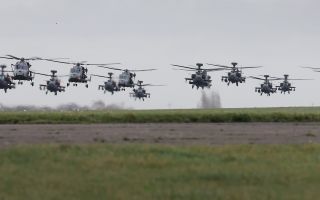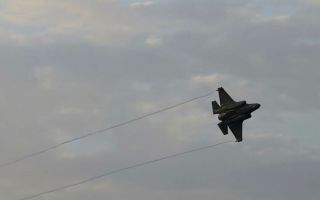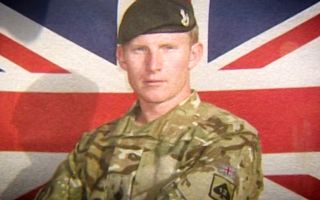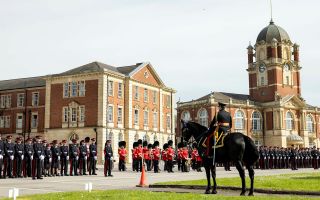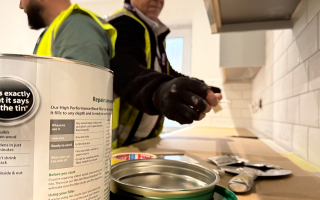Comment: The 'Front Line' Answer To Putin's Question...
The US Secretary of State John Kerry’s meeting with President Putin in Sochi seems to have achieved little other than that they agreed to disagree on issues, but at least are talking, and this might be the basis for more cooperation.
Both sides described what are the highest level US/Russia talks since the Ukraine crisis began as ‘frank and cordial’ although the State Dept. managed to tweet that they were ‘frank’ within minutes of them beginning.
However, later Mr Kerry was keen to stress how grateful he was that the Russian President had given him so much time given the different diplomatic levels they occupy.
The Americans seem to have dropped talk of ‘isolating’ Russia because of Ukraine and instead are attempting to prevent any further Russian advances through a mixture of cordial diplomatic talking and simultaneous military signalling, a strategy in which the Russian are also engaged.
Both sides continued to insist they support the shaky Minsk cease-fire agreement reached in February, but there was nothing from Moscow’s side to suggest they will halt the arming and training of Ukrainian rebels.
Russia allegedly now has 10 battalions along the border with Ukraine and its SA-15 and 22 air defence systems remain inside rebel held territory in Eastern Ukraine.
The message appears to be that if they wish they could take more territory, but this may be to put the government in Kiev under pressure to make concessions.
The Americans have already signalled a degree of intent and been supported in their messaging by several of what are now referred to as the ‘front line states.
It made few headlines in April but then the Romanian government made a bold statement aimed at Moscow when it approved the draft of a seemingly routine piece of legislation allowing foreign armies to transit, deploy, and base themselves on Romanian territory.
The new law is part of a range of military based legal, and physical, activity taking place in an arc from the Baltic down to the Black Sea.
It secured the legal framework for an agreement made at the NATO Summit in Wales last year, and it answered the question President Putin asks in private about Romania and other NATO members– ‘If I push towards their frontier – what will they do about it?'
It is a question felt most keenly by the Baltic States where Lithuania is reintroducing conscription.
What Romania will do is use the new law to help set up two new NATO command headquarters on its territory to be completed by the end of the year.
Two air facilities are also being upgraded to allow increased use of Hercules and CJ 27 Spartan aircraft. NATO’s military commander General Philip Breedlove is thought to believe that the Romanians will host heavy ground military equipment as well including tanks.
The country is destined to become a key part of planned beefing up of NATO’s rapid reaction force which is expected to grow from 13,000 troops to 30,000.
The Russians responded to the change in Romanian law by saying the move was part of a build-up of NATO forces which is “a dangerous step”. A Foreign Ministry spokesman added that “The Russian Federation has the right to bear in mind this essential factor in its military planning.”
But the Romanians have made it clear: In the new Cold War they are siding with the United States and NATO and so doing without equivocation despite, or indeed partially because of, the presence of up to 2,000 Russian troops in neighbouring Moldova.
The Russians do not look at this in isolation. In the past year they have seen how the Americans have responded to a call for help by the front line states – Estonia, Latvia, Lithuania, Poland, Romania, and Bulgaria.
In April they launched Operation Atlantic Resolve – a move designed to reassure those countries of Washington’s resolve in the wake of Russia’s invasion of Crimea. This spring they have increased the number of Infantry Brigade command staff rotating in and out of the operation.
In March they undertook a 1,100 mile, 120 vehicle, armoured convoy ‘tour', trundling through 6 countries in 11 days in a show of strength aimed squarely at Russia.
Moscow took note of that, and of this month’s mission which brought 120 US combat troops into Ukraine to help train the Ukrainian military.
To the west of the front line states the European NATO members are being more cautious in military signalling, deployment, and diplomacy. By contrast the Baltic States and Romania appear to see the wisdom in answering the questions Putin asks in private before he asks them in public.
Tim Marshall was formerly the Diplomatic Editor at Sky News. He can now be found atwww.thewhatandthewhy.com and @Itwitius


